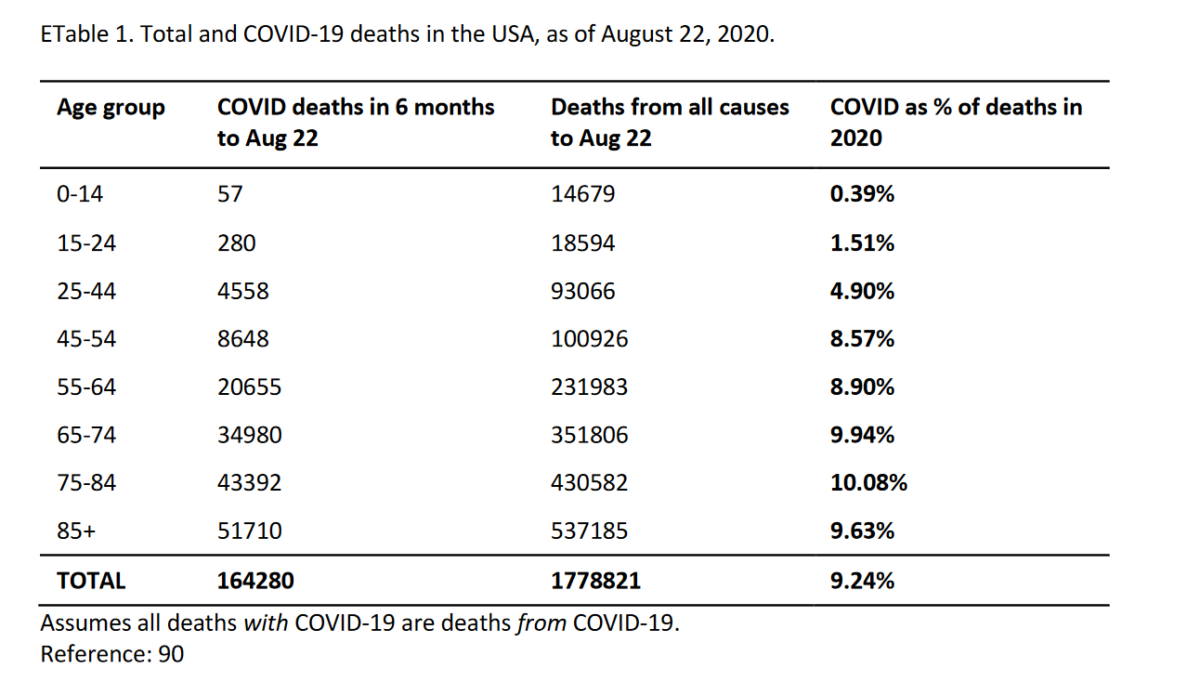Another piece of evidence against lockdowns; research shows close contact with children under 11 has no increased risk of Covid19 infection, close contact with those 12-18 has a small increased risk of infection, while there was no impact on outcomes of being infected with Covid19. As a bonus, closeness to children reduces non-Covid19 deaths….
Working on behalf of NHS England, we conducted a population-based cohort study using primary care data and pseudonymously-linked hospital and intensive care admissions, and death records, from patients registered in general practices representing 40% of England. Using multivariable Cox regression, we calculated fully-adjusted hazard ratios (HR) of outcomes from 1st February-3rd August 2020 comparing adults living with and without children in the household.
Findings Among 9,157,814 adults ≤65 years, living with children 0-11 years was not associated with increased risks of recorded SARS-CoV-2 infection, COVID-19 related hospital or ICU admission but was associated with reduced risk of COVID-19 death (HR 0.75, 95%CI 0.62-0.92). Living with children aged 12-18 years was associated with a small increased risk of recorded SARS-CoV-2 infection (HR 1.08, 95%CI 1.03-1.13), but not associated with other COVID-19 outcomes. Living with children of any age was also associated with lower risk of dying from non-COVID-19 causes. Among 2,567,671 adults >65 years there was no association between living with children and outcomes related to SARS-CoV-2. We observed no consistent changes in risk following school closure.
Interpretation For adults living with children there is no evidence of an increased risk of severe COVID-19 outcomes. These findings have implications for determining the benefit-harm balance of children attending school in the COVID-19 pandemic.
Funding This work was supported by the Medical Research Council MR/V015737/1.
Evidence before this study We searched MEDLINE on 19th October 2020 for population-based epidemiological studies comparing the risk of SARS-CoV-2 infection and COVID-19 disease in people living with and without children. We searched for articles published in 2020, with abstracts available, and terms “(children or parents or dependants) AND (COVID or SARS-CoV-2 or coronavirus) AND (rate or hazard or odds or risk), in the title, abstract or keywords. 244 papers were identified for screening but none were relevant. One additional study in preprint was identified on medRxiv and found a reduced risk of hospitalisation for COVID-19 and a positive SARS-CoV-2 infection among adult healthcare workers living with children.
Added value of this study This is the first population-based study to investigate whether the risk of recorded SARS-CoV-2 infection and severe outcomes from COVID-19 differ between adults living in households with and without school-aged children during the UK pandemic. Our findings show that for adults living with children there is no evidence of an increased risk of severe COVID-19 outcomes although there may be a slightly increased risk of recorded SARS-CoV-2 infection for working-age adults living with children aged 12 to 18 years. Working-age adults living with children 0 to 11 years have a lower risk of death from COVID-19 compared to adults living without children, with the effect size being comparable to their lower risk of death from any cause. We observed no consistent changes in risk of recorded SARS-CoV-2 infection and severe outcomes from COVID-19 comparing periods before and after school closure.
Implications of all the available evidence Our results demonstrate no evidence of serious harms from COVID-19 to adults in close contact with children, compared to those living in households without children. This has implications for determining the benefit-harm balance of children attending school in the COVID-19 pandemic.
https://www.medrxiv.org/content/10.1101/2020.11.01.20222315v1


